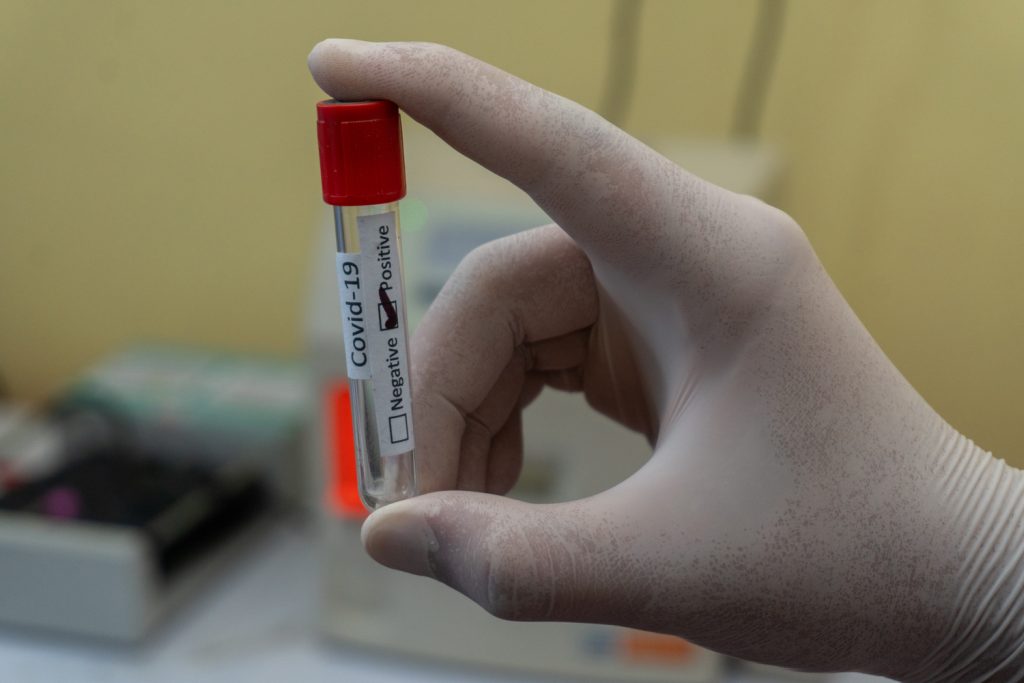By Christine Vestal
Stateline, an initiative of
The Pew Charitable Trusts
The day before a planned visit from President Donald Trump earlier this month, a technician swabbed Ohio Gov. Mike DeWine to test him for COVID-19. Within 15 minutes, a plus sign for a positive result appeared on the screen of a desktop device the size of a digital alarm clock.
Later that day, however, the Republican governor was tested using a laboratory analysis, which produced a negative result. DeWine’s high-profile testing error raised concerns about the reliability of so-called rapid result antigen tests. But the mishap did little to dampen enthusiasm for the cheap, fast and easy-to-use tests.
Many, including members of the Trump administration’s coronavirus task force, say rapid result tests have the potential to cure the nation’s COVID-19 testing shortage — a problem that has hobbled public health efforts to control the virus from the beginning.

At the same time, public health officials worry that the less sensitive tests — which are increasingly used in doctor’s offices, nursing homes, jails, schools and workplaces — could muddy the surveillance data epidemiologists rely on to monitor the spread of the virus.
They question whether users of the tests outside medical settings will be able to accurately report results from what is projected to be millions of antigen tests every day.
NDG 9/3 Issue: The Forgotten Struggle and The Obligation to Better America
“It’s a very serious problem,” said Dr. Jeff Engel, senior adviser and former executive director of the Council of State and Territorial Epidemiologists, which along with the federal Centers for Disease Control and Prevention, sets standards for state reporting of infectious disease data.
“Since the industry started scaling up production of antigen tests in June and July,” Engel said, “it has changed the entire environment of COVID testing and surveillance.”
Engel and other experts acknowledge that antigen tests and a new fast-acting saliva test approved by the U.S. Food and Drug Administration this month could allow the nation to get back to more normal life, even before a vaccine is widely available. Ultimately, the tests are expected to become so cheap and plentiful that every American could have a supply of them to use at home.
NDG 8/20 issue: Voter Suppression. The Birth of Apathy.
But individual users still would be expected to report both positive and negative results to their local health authorities.
Earlier this month, Engel’s organization and the CDC called on state and local public health agencies to record positive antigen test results as possible COVID-19 cases and convert the cases to confirmed status only after a more accurate test is performed.
NDG 7/13 issue: The more things change the more they stay the same
Although an estimated 10 million antigen tests have been performed in the United States since June, only about 500,000 have been recorded in daily test counts, according to Alexis Madrigal, a journalist and founder of The Atlantic’s COVID Tracking Project.
Only six states — Arkansas, Florida, Kentucky, Massachusetts, Texas and Utah — appear to be accounting for antigen tests conducted in the state, he said. As recommended by the CDC, the states are not reporting positive cases unless confirmed by a laboratory test.
“It is a huge policy issue, and it’s a huge problem,” Madrigal said. “These rapid point-of-care tests are a remarkable public health tool, but they also make it difficult to track how much testing is being done.”
Jennifer Nuzzo, senior scholar at the Johns Hopkins Center for Health Security, which also tracks state and local COVID-19 data, agreed. “Rapid result tests are potentially going to be helpful,” she said. “But we need to figure out how states are going to use them and how they’re going to report the data.
“One of the reasons we’re in this mess is that states are making high-stakes decisions about whether to restrict travel and open or close schools and businesses based on positivity rates,” she said. “We have to hope they’re calculating them with the correct data.”
Read the entire report here.




